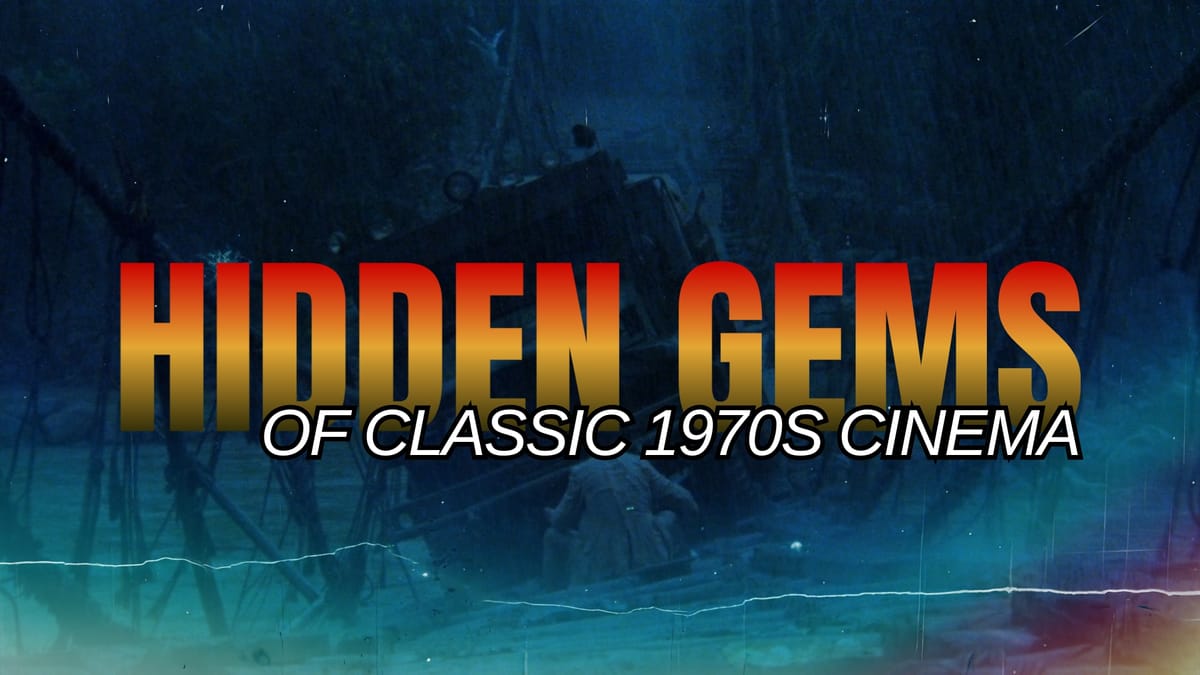Time Capsule Cinema: Films That Perfectly Captured the 1970s (Part 1 of 3)
The gritty realism of 70s cinema captured post-Vietnam America through earth tones, urban decay, and authentic fashion that defined a disillusioned era.

This is the first installment in our three-part series exploring "time capsule" cinema—films that perfectly captured the aesthetic and cultural moments of their respective decades. Part 2 will cover the 1980s, and Part 3 examines the 1990s.
Have you ever watched a movie that instantly transported you to another decade? That feeling when every frame screams "this is so 70s!" isn't just coincidence—it's the magic of what I call "time capsule cinema." These special films don't just tell stories set in particular eras; they embody the very essence of their times through visual style, music, fashion, and cultural attitudes.
What Makes a Film a "Time Capsule"?
Time capsule films differ from period pieces in one crucial way: they weren't trying to recreate an era—they were living it. While a modern film set in the 1970s might carefully research fashion and music to recreate the decade, actual 70s films naturally incorporated these elements because they were simply reflecting their present reality.
The most effective time capsule films include:
- Authentic visual style reflecting the filmmaking techniques of the era
- Contemporary fashion representing what people actually wore
- Era-defining music placing the film precisely in its cultural moment
- Cultural context capturing the social issues and everyday realities
The 1970s: Gritty Realism and Cultural Revolution
The 1970s marked a pivotal shift in American cinema. As the optimism of the 1960s faded, filmmakers turned their cameras toward a grittier, more authentic vision of America. This was the era of "New Hollywood," when the old studio system crumbled and a new generation of directors created films that reflected the complicated reality of a nation in transition.
The Visual Language of 70s Cinema
What makes 70s films so instantly recognizable?
- Distinctive color palette: Cinematographers embraced natural lighting and a documentary-like approach. Earth tones—browns, oranges, yellows, and muted greens—dominated both interiors and wardrobes.
- Urban decay as character: New York City appeared in countless films not as a glamorous backdrop but as a decaying metropolis struggling with crime, poverty, and neglect.
- Film grain aesthetic: The slightly grainy quality of many 70s films adds to their documentary feel. Directors like Martin Scorsese, Francis Ford Coppola, and Robert Altman weren't trying to create glossy entertainment—they were attempting to capture reality in all its complicated truth.
5 Must-See Time Capsule Films of the 70s
1. Nashville (1975)
Director: Robert Altman
Why it's a perfect time capsule: Altman's sprawling ensemble piece about the country music scene captures America at a cultural and political crossroads, still reeling from Vietnam and Watergate while preparing for its bicentennial celebration.
Look for: The rhinestone-studded outfits of established country stars contrasting with the more modest attire of hopefuls, while political operatives move through the scene in their own distinct wardrobe. The film captures not just the music industry but the entire social ecosystem of mid-70s America.
2. Saturday Night Fever (1977)
Director: John Badham
Why it's a perfect time capsule: While often remembered just for John Travolta's white suit, this film documents the entire disco fashion ecosystem—from elaborate nightclub outfits to everyday street wear of working-class Brooklyn.
Look for: The complete visual encyclopedia of late-70s style and the authentic portrayal of disco culture as a genuine escape from the economic struggles of working-class life.
3. The Warriors (1979)
Director: Walter Hill
Why it's a perfect time capsule: Captures a specific moment in New York City's history—when urban decay had reached its peak, before the gentrification of the 1980s would begin to transform the city.
Look for: Each gang's distinctive "uniform"—from the Baseball Furies with their painted faces to the overall-wearing punks. While stylized, these outfits grew from real urban tribal identities forming in late-70s New York.
4. Taxi Driver (1976)
Director: Martin Scorsese
Why it's a perfect time capsule: Shows a protagonist whose Vietnam experience has left him disconnected from society, wandering through a decaying New York that seems beyond salvation.
Look for: The steam-rising-from-manholes urban hellscape that became shorthand for "70s New York" in our cultural memory.
5. All the President's Men (1976)
Director: Alan J. Pakula
Why it's a perfect time capsule: Directly addresses the political corruption and paranoia of post-Watergate America.
Look for: The documentary-like approach to journalism and political scandal that reflects the skepticism toward authority that defined the era.
The Politics of Disillusionment
What truly makes 70s films such perfect time capsules is how they captured the political mood of post-Vietnam, post-Watergate America. The optimism of the 60s had curdled into cynicism, and filmmakers didn't shy away from this new reality.
Films like "Network" (1976) predicted the troubling future of media with eerie accuracy, while paranoid political thrillers like "The Parallax View" (1974) and "Three Days of the Condor" (1975) tapped into the distrust of government institutions that defined the era.
Why 70s Films Remain Perfect Time Capsules
What makes these films so effective as time capsules is their authenticity. Unlike period pieces that recreate an era through research and production design, these films were made in the moment by people living through the very cultural shifts they were documenting.

When we watch these films today, we're not seeing a recreation of the 1970s—we're seeing the 1970s itself, preserved like an insect in amber. They show us not just how the decade looked but how it felt to live through this pivotal time in American culture.
In Part 2 of our series, we'll explore how the gritty realism of 70s cinema gave way to the neon-soaked, larger-than-life aesthetics of 1980s films, reflecting the dramatic cultural shift from post-Watergate cynicism to Reagan-era optimism and materialism.





Comments ()